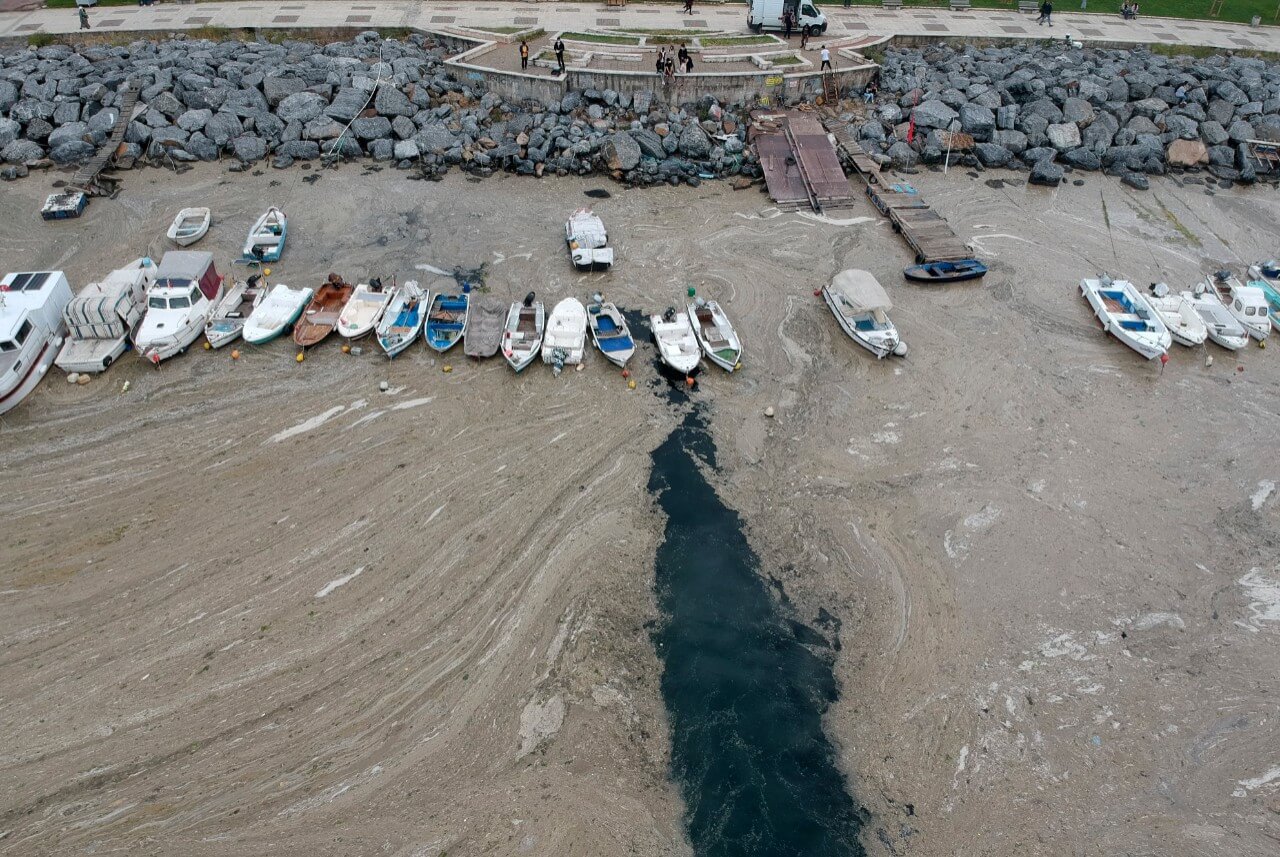Turkish President Recep Tayyip Erdoğan has vowed to defeat the “sea snot” outbreak in the Marmara Sea that is threatening the region’s marine life and fishing industry. Experts have attributed the outbreak, which is the largest such event on record, to increasing pollution levels and rising global temperatures.
On the occasion of World Environment Day on June 5, Erdoğan said, “We will save our seas, first and foremost the Marmara Sea, from the scourge of mucilage”. He further added that the issue would be “addressed by the Ministry of Environment and Urbanisation in cooperation with universities.”
Also known as marine mucilage, “sea snot” is a thick mucus-like organic matter that has been rapidly spreading through the Marmara Sea in southern Istanbul as well as in parts of the Black Sea. Turkish officials have blamed the sudden spread of the “sea snot” on increasing pollution levels and global warming and scientists have explained that a combination of the two has contributed to an overgrowth of the organic substance, which can flourish in warm conditions. The release of wastewater into the sea also provides the organic matter with conducive conditions to proliferate.
According to reports, harbours, shorelines and vast areas of seawater have been completely covered by the mucilage. Experts have said that the blooming of the organic substance poses a threat to the region’s marine ecosystem. It has also been reported that some of the mucilage has sunk below the seawater, suffocating life on the seabed. Videos taken underwater also show corals being blanketed by the thick substance, blocking off sunlight, which is essential for the corals’ survival. The Marmara Sea hosts a variety of rare corals that provide shelter and much-needed minerals for the marine life in the area, and the outbreak, therefore, poses a great risk for the fragile marine ecosystem.
Although the slimy substance has previously appeared in Turkey in 2007 and off the Greek coastline in the Aegean Sea, the current rapid spread of the mucilage is unprecedented in the country’s history. In this respect, Erdoğan also warned that Turkey’s seas should be cleaned without further delay to prevent the “sea snot” from spreading and endangering the ecology in the area.
The outbreak is also posing a great risk to Turkey’s fishing industry as well. A local fisherman told The Guardian on Saturday that the spread is making fishing harder, as navigating through the thick organic matter in boats has been made more difficult. The substance also prevents fishermen from getting a profitable catch, as it has killed a lot of the fish and sea snails in the surrounding waters.
In order to mitigate the effect of the “sea snot” and prevent it from further damaging marine life, Turkish Environment Minister Murat Kurum said that the government plans on marking the entire Marmara Sea as a protected area. He also mentioned that the country is seeking to reduce pollution levels and improve wastewater treatment in coastal cities and ships.
“Hopefully, together we will protect our Marmara within the framework of a disaster management plan,” Kurum said. “We will take all the necessary steps within three years and realize the projects that will save not only the present but also the future together.” He also urged local residents and NGOs to participate in what he called Turkey’s largest maritime clean-up operation on Tuesday.

